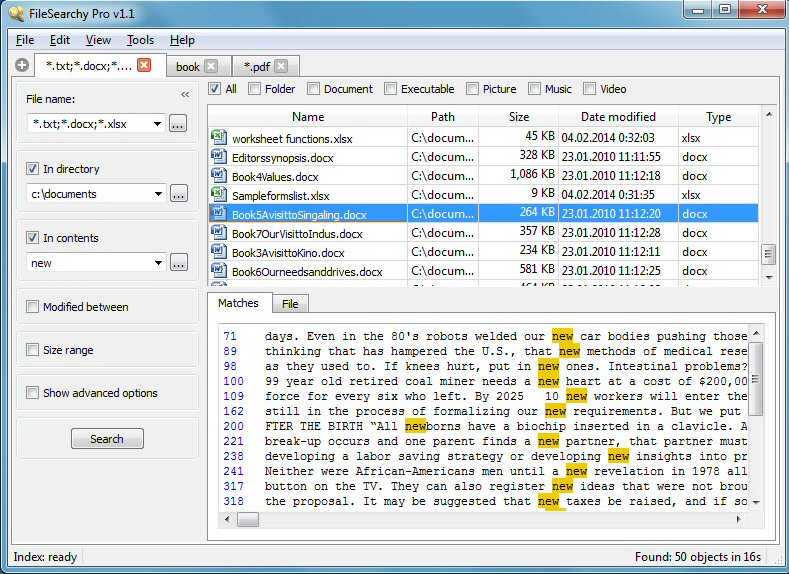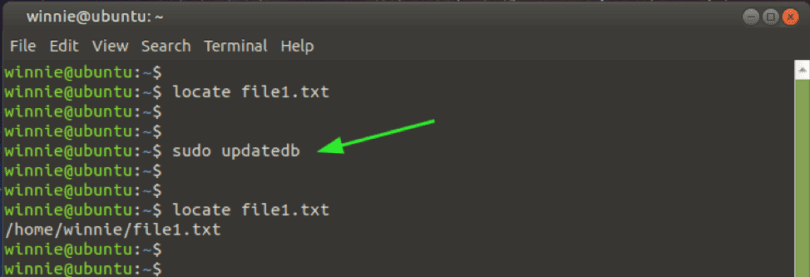
LINUX FIND FILE NAME CONTAINING STRING FULL
They'd normally be removed to get your full listing! also, replace the echowhich whatever command you want to use. NOTE: The above examples are using head -5 to merely limit the amount of output we're dealing with for these examples.

type f -name "*f*" -exec dirname "/*f*Īpproach #1 - Parsing using files $ find -type f -name '*f*' -print0 | sed -e 's#/*\x00#\x00#g' | sort -zu | xargs -0 -n1 echo | head -n5 Issues regard special chars and newline are also mute if you did not need to sort or directories names are not affected. Imagine needing the command in a script where command will be in single quotes, escaping sed command is painful and less than ideal, so replace with dirname. A more robust solution is to do the sorting on NUL-terminated strings: find.

The above versions will be confused by file names that include newlines.

type f -name '*f*' -printf '%h\n' | sort -u type f -name '*f*' | sed -E 's|/+$||' |sort -uĪlso, if your find command supports it, it is possible to have find print the directory names directly. type f -name '*f*' | sed -r 's|/+$||' |sort -uĪnd, for MacOS sed: find. Many modern sort commands support a -u flag which makes uniq unnecessary. Thus, the sed command removes the file name, leaving unchanged the name of directory that the file was in. In other words, this matches the file name at the end of the full path. Thus, /+$ means all characters from the final slash to the end of the line. +' means one or more characters that are not slashes. The dollar sign means the end of the line. In other words, it will look into sub-directories too. The -r option read/sarch all files under each directory, recursively, following symbolic links only if they are on the command line. It looks for matches to the regular expression /+$ and replaces anything matching that with nothing. The syntax is as follows for the grep command to find all files under Linux or Unix in the current directory: cd /path/to/dir grep -r 'word'. Here, the '-r' or '-R' flag recursively searches through the all subdirectories inside the specified directory. The sed command consists of a single substitute. Now to search and find all files for a given text string in a Linux terminal, you can run the following command. Then, the list of directories is sorted ( sort) and duplicates removed ( uniq). Next, sed removes the file name, leaving just the directory name. ) that are regular files ( -type f) and have f somewhere in their name ( -name '*f*'). The above finds all files below the current directory (. For more information on the Linux find command, here’s a link to my Linux ‘find’ command examples article.Find. I hope this quick tip on finding Unix and Linux files and directories that don't match a filename pattern (not matching a pattern) has been helpful.
LINUX FIND FILE NAME CONTAINING STRING HOW TO
Summary: How to find files that don’t match a filename pattern type f -not -name "*.html" -exec ls -l \ Here’s how to run a simple Unix ls command on them:įind. Of course it’s usually not enough to find files not matching a filename pattern usually you want to do something with them. Find files not matching a filename pattern and doing something with them html file extension (filename pattern).Īlso, if you’re not familiar with it, the -f argument in that find command means “just look for files,” and don’t return search results for directories. This command will search through the directories for files.

This Linux find command using the “not” operator creates a list of all files not ending with the. The best way to find files by name in Linux is using the find command with the -name option. Fortunately with the newer Unix/Linux find syntax this solution is pretty easy, you just include the -not argument, like this: In my case I just ran into a situation where I needed to find all files below the current subdirectory that are NOT named with the filename pattern *.html. Unix/Linux find command “patterns” FAQ: How do I find files or directories that don’t match a specific pattern (files not matching a regex pattern, or filename pattern)?


 0 kommentar(er)
0 kommentar(er)
